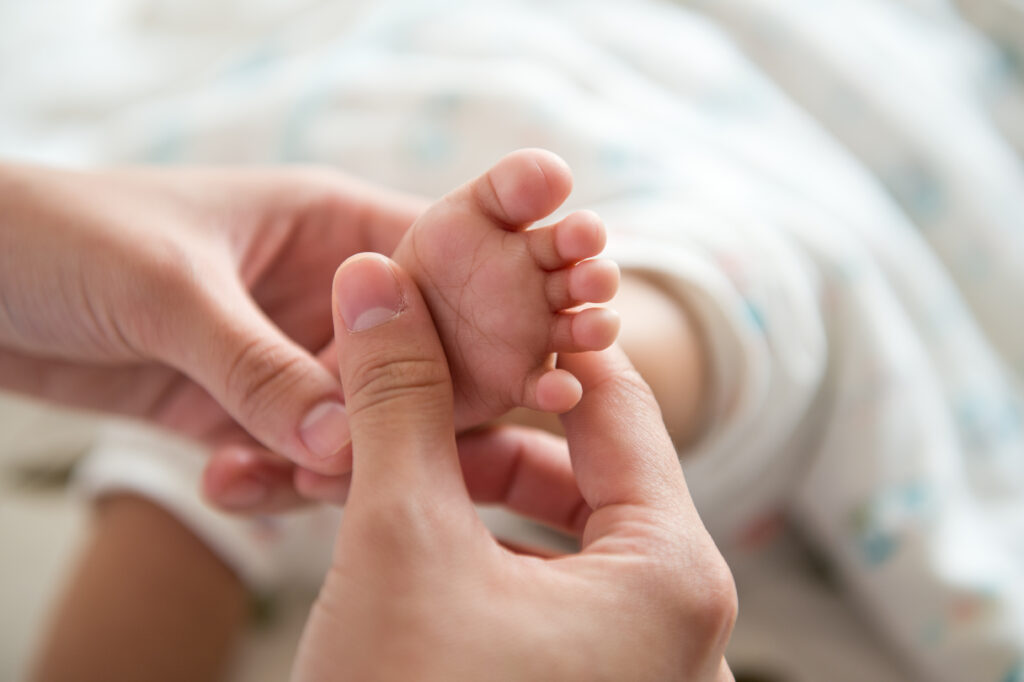What is positional talipes?
Positional talipes (also known as positional talipes equinovarus) is a common condition affecting babies feet. It is usually noted shortly after birth. Positional talipes involves your baby’s foot resting in a pointed down and turned in position. The bones and muscles of the foot are normal and your baby’s foot remains flexible and can be gently moved into a normal position.
Positional talipes is thought to be caused by the position of your baby while in the womb. It is often referred to a ‘packaging condition”. Referring to how your baby has been positioned or ‘packaged’ during pregnancy.
It can affect one or both of your baby’s feet.
What is the natural history of positional talipes?
Your baby’s foot position will usually resolve in the first few months of your baby’s life.
What is the treatment?
As mentioned, the natural history of positional talipes is that your baby’s foot position will usually resolve in the first few months of life. However, gentle stretches and touch/massage may also help to assist your baby’s foot posture.
Hold each stretch for a few seconds or longer if you baby is comfortable and relaxed. Try each stretch regularly, for example, at each nappy change. Try to do the stretches when your baby is most relaxed, for example just after a feed.
Exercise 1 – Gently move your baby’s foot outwards
Exercise 2 – Gently move your baby’s foot up towards their shin
Exercise 3 – Gently touch/stroke the outer side of your baby’s foot and lower leg to stimulate the muscles to actively move the foot into a normal position.

What conditions are associated with it?
Careful examination of your baby is required to check for other conditions associated with your baby’s position while in the womb. For this reason, a careful hip examination is required.
What tests are required?
Positional tallies is diagnosed from a clinical examination. No special tests (such as an Xray) are required.
If you are concerned that your baby’s foot feels stiff or is not improving over the first few months of life you should should be assessed in the clinic.
